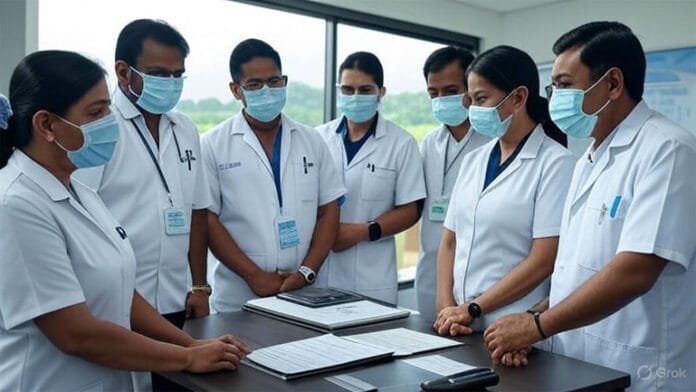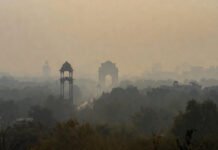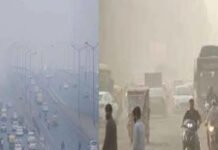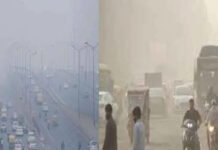INVC NEWS
New Delhi — : The coronavirus has once again resurfaced, creating an unsettling atmosphere both domestically and globally. While Singapore and Hong Kong are experiencing sharp spikes in active cases, India has reported a steady uptick as well, particularly in the southern and western regions. Kerala, Maharashtra, and Tamil Nadu have emerged as the most impacted states, prompting health authorities to tighten surveillance and preventive measures.
Rising COVID-19 Cases in India: Current Situation
According to the latest data, India currently has 257 active COVID-19 cases, with the southern states bearing the heaviest burden. Here’s a breakdown of the situation:
Kerala has reported 69 active cases, marking a significant rise in a short span.
Tamil Nadu has confirmed 34 active cases, mostly mild in nature.
Maharashtra is witnessing 44 active cases, and two COVID-related deaths have been confirmed in Mumbai.
Other states including Delhi (3), Karnataka (8), Gujarat (6), Haryana (1), Rajasthan (1), and Sikkim (1) have also reported isolated cases.
These numbers, while relatively small compared to global figures, have triggered precautionary steps by both central and state health authorities.
Kerala Leads with the Highest Number of Active Cases
Kerala, known for its robust healthcare system, is once again under the scanner as active COVID-19 cases climb. With 69 patients currently infected, local health departments have launched contact tracing and testing drives in vulnerable clusters. While symptoms remain mild in most patients, authorities have reiterated the importance of COVID-appropriate behavior, especially in public spaces.
Quarantine guidelines have been reinforced for travelers arriving from high-risk regions, and medical teams are conducting door-to-door surveillance in hotspot zones. Temporary COVID-care centers are being reactivated as a precautionary measure.
Tamil Nadu Reports a Gradual Rise in Infections
The health department in Tamil Nadu has confirmed 34 active COVID-19 cases. Most of these cases are concentrated in Chennai and nearby districts. While no severe cases have been reported, the state government has alerted district health officials to remain vigilant.
Public health teams have begun to increase RT-PCR testing, especially in high-density urban zones and transportation hubs. Fever camps are being organized, and public announcements are encouraging residents to wear masks in crowded areas once again.
Maharashtra Takes Swift Action Amidst Rising Concern
Maharashtra, which bore the brunt of earlier COVID-19 waves, has recorded 44 new active cases and two deaths attributed to complications from the virus in Mumbai. Though these figures remain low in a state of over 120 million people, they have sparked proactive responses from the state health ministry.
Hospitals in urban centers have been directed to maintain COVID isolation beds and ensure availability of oxygen supplies. The Brihanmumbai Municipal Corporation (BMC) has reintroduced mobile health units to monitor symptomatic individuals in vulnerable communities.
Delhi, Karnataka, Gujarat and Others Report Sporadic Cases
The national capital Delhi has identified three active cases, all under home isolation. Meanwhile, Karnataka (8 cases), Gujarat (6 cases), Haryana, Rajasthan, and Sikkim (1 case each) have reported minimal activity but are intensifying border checks and surveillance in healthcare facilities.
State health authorities have directed district hospitals to revisit their COVID-19 preparedness protocols, and medical staff have been instructed to stay updated on treatment guidelines for emerging variants.
Global COVID-19 Spike: Singapore and Hong Kong See Alarming Rise
Outside India, Singapore is witnessing a major surge with 14,000 new active COVID-19 cases reported in May alone. The government there has reinstated mask mandates in certain settings and limited large gatherings to curb further transmission. Similarly, Hong Kong is dealing with a new wave, with hospitals gradually filling up and vaccination boosters being administered at an accelerated pace.
The resurgence in these Asian countries has heightened concerns in India about a possible spillover or similar trend. With air travel back to normal levels, authorities have increased screening protocols at international airports.
Ministry of Health: The Situation is Under Control
Following a high-level review meeting chaired by senior officials from the Ministry of Health, the government reassured the public that the COVID-19 situation remains under control in India. The ministry emphasized that the existing infections are mild, with no immediate need for hospitalization in most cases.
Emergency preparedness plans have been updated, and states have been asked to maintain buffer stocks of antiviral drugs, PPE kits, and medical oxygen. Surveillance of influenza-like illness (ILI) and severe acute respiratory infections (SARI) cases has also been intensified.
India’s Preventive Framework: Monitoring and Surveillance
The Indian health ecosystem has implemented a multi-pronged strategy:
Genome sequencing is being conducted to detect any new variants of concern.
Integrated Disease Surveillance Program (IDSP) teams are active across all districts.
Health workers are being retrained to handle COVID resurgence scenarios.
Digital platforms are being used to track patients and resources efficiently.
The government is also in continuous coordination with the World Health Organization (WHO) and neighboring countries to exchange information on variant behavior and effective treatment protocols.
Public Advisory: Vigilance Without Panic
While numbers remain manageable, health experts recommend that citizens remain vigilant. Wearing masks in crowded places, maintaining hand hygiene, and avoiding unnecessary travel are still effective in curbing transmission. Citizens are also encouraged to get booster shots, especially the elderly and immunocompromised individuals.
Special advisories have been issued for schools, colleges, and religious gatherings, urging organizers to ensure ventilation, crowd management, and availability of sanitization resources.
Outlook: Can India Avoid Another Major Wave?
India’s ability to avoid a severe new wave will depend on continued early detection, community-level containment, and public cooperation. So far, the nation’s healthcare machinery has demonstrated resilience and adaptability, which will be key in navigating the next few weeks.
With states like Kerala and Maharashtra closely monitoring the situation and the central government offering logistical support, India is well-positioned to prevent an escalation. However, complacency could reverse gains, making it crucial for all stakeholders to remain engaged and prepared.
Conclusion: Stay Informed, Stay Safe
As the coronavirus re-emerges in different parts of the world, India is at a critical juncture. Although the current case numbers are low, the presence of active cases across multiple states signals the need for renewed caution. Proactive governance, informed citizens, and efficient healthcare responses will determine the course of the pandemic in the coming months.
We must continue to monitor, respond, and adapt, keeping health and safety at the forefront. The return of COVID-19 serves as a stark reminder: the fight isn’t over yet.
















